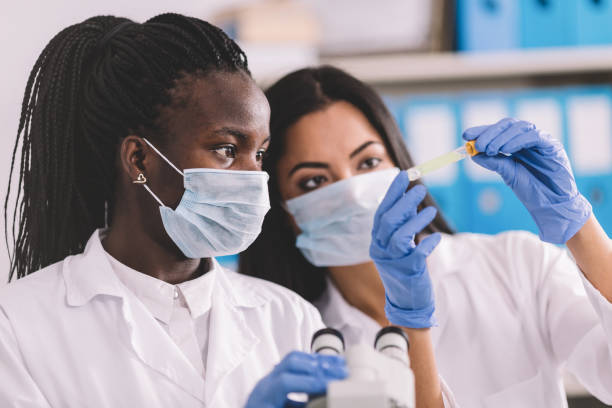The Coronavirus Pandemic: Unveiling the Global Crisis
In late 2019, the world found itself grappling with a new and highly contagious virus known as the coronavirus, specifically named SARS-CoV-2. This virus sparked a pandemic that has since reshaped the way societies operate, from public health practices to economies and daily routines. The coronavirus, responsible for the disease COVID-19, has elicited profound effects on health, economies, and daily life, leading to an unprecedented global crisis.
Origins and Spread of the Coronavirus:
The origins of the coronavirus can be traced back to a seafood market in Wuhan, China, where it is believed to have crossed from animals to humans. Initially, the virus spread slowly within China and then to other parts of the world, gaining momentum through international travel and human interactions. Its rapid transmission and ability to be asymptomatic in carriers contributed to its silent yet aggressive spread.
Health Impacts and Responses:
COVID-19, the disease caused by the coronavirus, varies in severity from mild respiratory symptoms to severe pneumonia and even death, with older adults and those with preexisting health conditions being particularly vulnerable. The overwhelming influx of cases strained healthcare systems globally, resulting in shortages of medical supplies, hospital beds, and personnel.
Governments and health organizations responded with measures ranging from widespread testing and contact tracing to lockdowns and travel restrictions. The pandemic underscored the importance of social distancing, mask-wearing, and frequent handwashing to mitigate the virus's spread. Scientists and medical experts raced to develop vaccines, resulting in multiple successful candidates in record time.
Economic Disruptions:
The pandemic's economic repercussions were significant and far-reaching. Lockdowns and restrictions meant that businesses had to shut down temporarily, leading to mass layoffs and unemployment. Industries reliant on travel, tourism, and physical presence, such as hospitality and retail, were hit particularly hard. Governments intervened with stimulus packages and financial aid to support struggling businesses and individuals.
At the same time, the crisis accelerated trends in remote work, e-commerce, and digitalization. Companies adapted to new ways of operating, redefining the traditional workspace and business models. The pandemic highlighted the need for economic resilience and diversified supply chains, prompting discussions about future preparedness.
Societal Adaptations:
As the pandemic necessitated social distancing and isolation, people around the world faced challenges in maintaining their mental and emotional well-being. Lockdowns and restrictions altered daily routines, leading to increased reliance on technology for remote communication, work, education, and social interaction. Virtual platforms became essential lifelines for staying connected with loved ones and colleagues.
The pandemic also exposed and exacerbated existing societal inequalities. Disparities in healthcare access, education, and income were laid bare, disproportionately affecting marginalized communities. Discussions around social justice and the need for more inclusive and equitable systems gained momentum.
Scientific Progress and Vaccine Development:
Amid the pandemic's challenges, the scientific community demonstrated remarkable collaboration and innovation. Researchers worldwide worked tirelessly to understand the virus's genetic makeup, transmission patterns, and potential treatments. The development of effective vaccines at unprecedented speeds marked a pivotal moment in the fight against COVID-19.
Vaccination campaigns were launched globally to curb the virus's spread and prevent severe illness. However, issues such as vaccine distribution, hesitancy, and access underscored the complexity of achieving widespread immunity. Efforts to vaccinate the global population revealed the interconnectedness of nations in addressing public health crises.
Looking Forward:
The coronavirus pandemic prompted a reevaluation of many aspects of society. It underscored the importance of preparedness for global health emergencies, the need for international collaboration, and the significance of science-driven decision-making. Lessons learned from the pandemic are likely to shape healthcare systems, public health policies, and disaster response strategies for years to come.
As the world continues to navigate the complexities of the pandemic, a sense of shared humanity and resilience has emerged. The crisis revealed both the vulnerabilities and strengths of societies, highlighting the importance of collective action and cooperation. While the road to recovery remains challenging, the lessons learned from the coronavirus pandemic will undoubtedly leave an indelible mark on the world's future.
In late 2019, the world found itself grappling with a new and highly contagious virus known as the coronavirus, specifically named SARS-CoV-2. This virus sparked a pandemic that has since reshaped the way societies operate, from public health practices to economies and daily routines. The coronavirus, responsible for the disease COVID-19, has elicited profound effects on health, economies, and daily life, leading to an unprecedented global crisis.
Origins and Spread of the Coronavirus:
The origins of the coronavirus can be traced back to a seafood market in Wuhan, China, where it is believed to have crossed from animals to humans. Initially, the virus spread slowly within China and then to other parts of the world, gaining momentum through international travel and human interactions. Its rapid transmission and ability to be asymptomatic in carriers contributed to its silent yet aggressive spread.
Health Impacts and Responses:
COVID-19, the disease caused by the coronavirus, varies in severity from mild respiratory symptoms to severe pneumonia and even death, with older adults and those with preexisting health conditions being particularly vulnerable. The overwhelming influx of cases strained healthcare systems globally, resulting in shortages of medical supplies, hospital beds, and personnel.
Governments and health organizations responded with measures ranging from widespread testing and contact tracing to lockdowns and travel restrictions. The pandemic underscored the importance of social distancing, mask-wearing, and frequent handwashing to mitigate the virus's spread. Scientists and medical experts raced to develop vaccines, resulting in multiple successful candidates in record time.
Economic Disruptions:
The pandemic's economic repercussions were significant and far-reaching. Lockdowns and restrictions meant that businesses had to shut down temporarily, leading to mass layoffs and unemployment. Industries reliant on travel, tourism, and physical presence, such as hospitality and retail, were hit particularly hard. Governments intervened with stimulus packages and financial aid to support struggling businesses and individuals.
At the same time, the crisis accelerated trends in remote work, e-commerce, and digitalization. Companies adapted to new ways of operating, redefining the traditional workspace and business models. The pandemic highlighted the need for economic resilience and diversified supply chains, prompting discussions about future preparedness.
Societal Adaptations:
As the pandemic necessitated social distancing and isolation, people around the world faced challenges in maintaining their mental and emotional well-being. Lockdowns and restrictions altered daily routines, leading to increased reliance on technology for remote communication, work, education, and social interaction. Virtual platforms became essential lifelines for staying connected with loved ones and colleagues.
The pandemic also exposed and exacerbated existing societal inequalities. Disparities in healthcare access, education, and income were laid bare, disproportionately affecting marginalized communities. Discussions around social justice and the need for more inclusive and equitable systems gained momentum.
Scientific Progress and Vaccine Development:
Amid the pandemic's challenges, the scientific community demonstrated remarkable collaboration and innovation. Researchers worldwide worked tirelessly to understand the virus's genetic makeup, transmission patterns, and potential treatments. The development of effective vaccines at unprecedented speeds marked a pivotal moment in the fight against COVID-19.
Vaccination campaigns were launched globally to curb the virus's spread and prevent severe illness. However, issues such as vaccine distribution, hesitancy, and access underscored the complexity of achieving widespread immunity. Efforts to vaccinate the global population revealed the interconnectedness of nations in addressing public health crises.
Looking Forward:
The coronavirus pandemic prompted a reevaluation of many aspects of society. It underscored the importance of preparedness for global health emergencies, the need for international collaboration, and the significance of science-driven decision-making. Lessons learned from the pandemic are likely to shape healthcare systems, public health policies, and disaster response strategies for years to come.
As the world continues to navigate the complexities of the pandemic, a sense of shared humanity and resilience has emerged. The crisis revealed both the vulnerabilities and strengths of societies, highlighting the importance of collective action and cooperation. While the road to recovery remains challenging, the lessons learned from the coronavirus pandemic will undoubtedly leave an indelible mark on the world's future.




